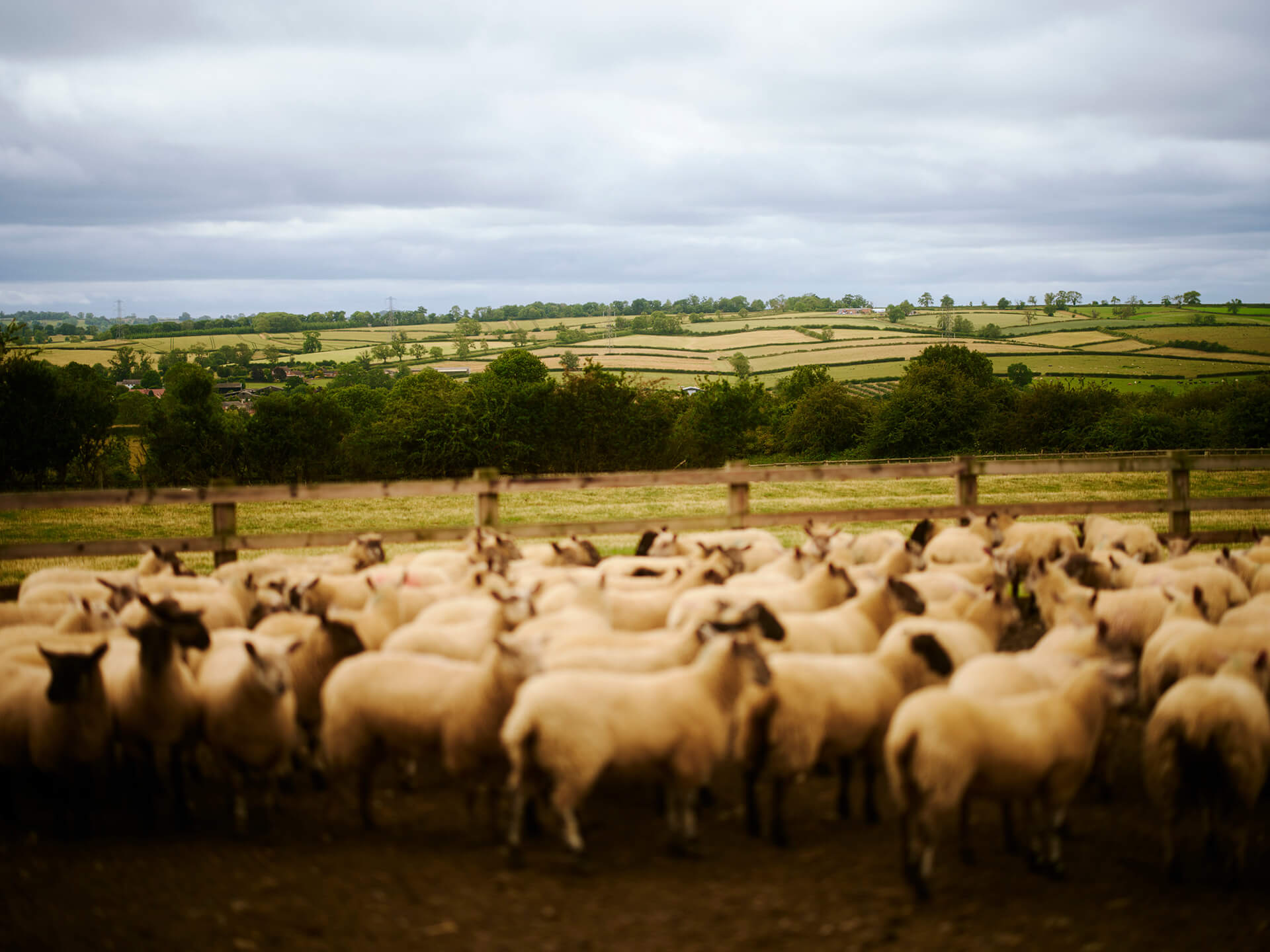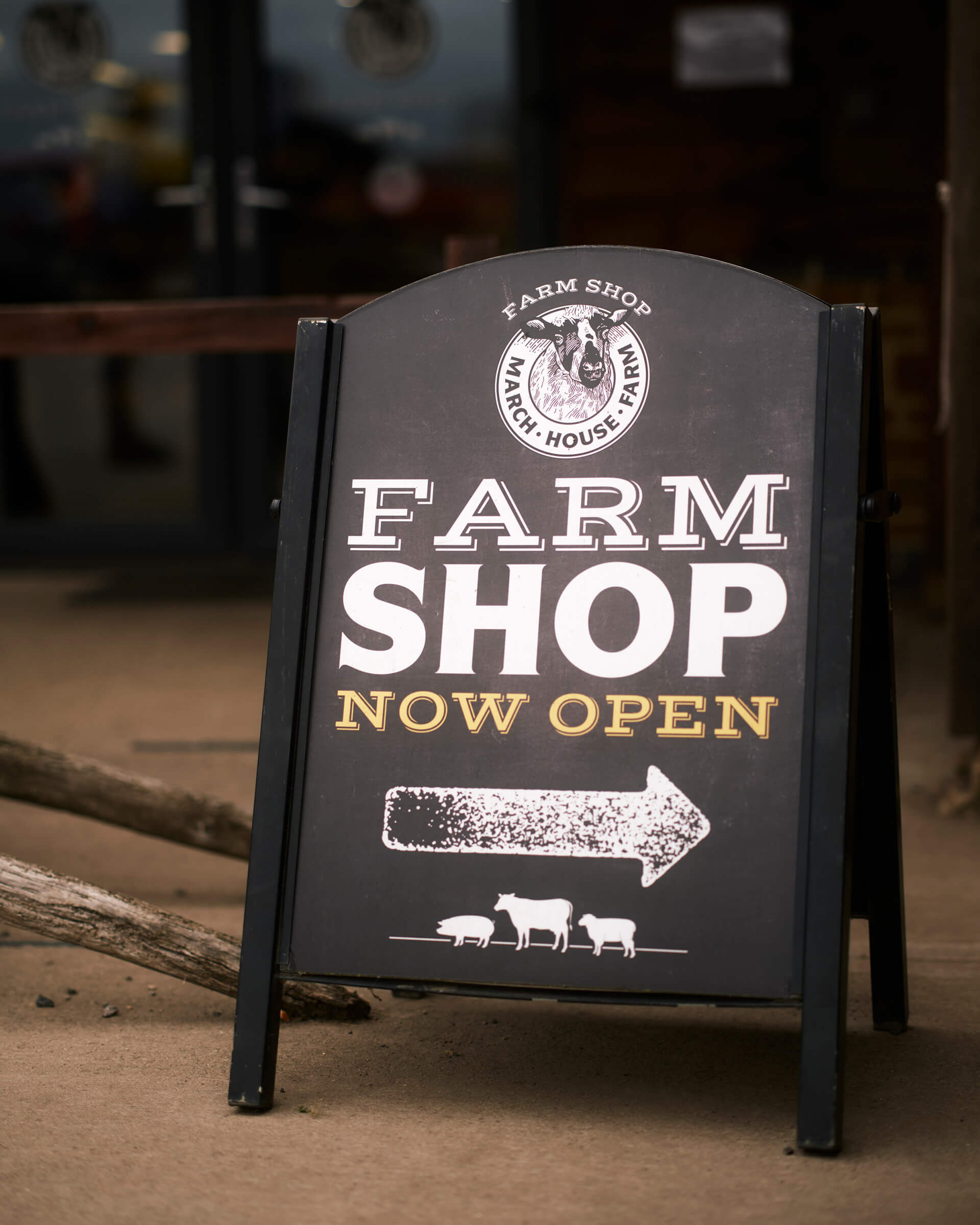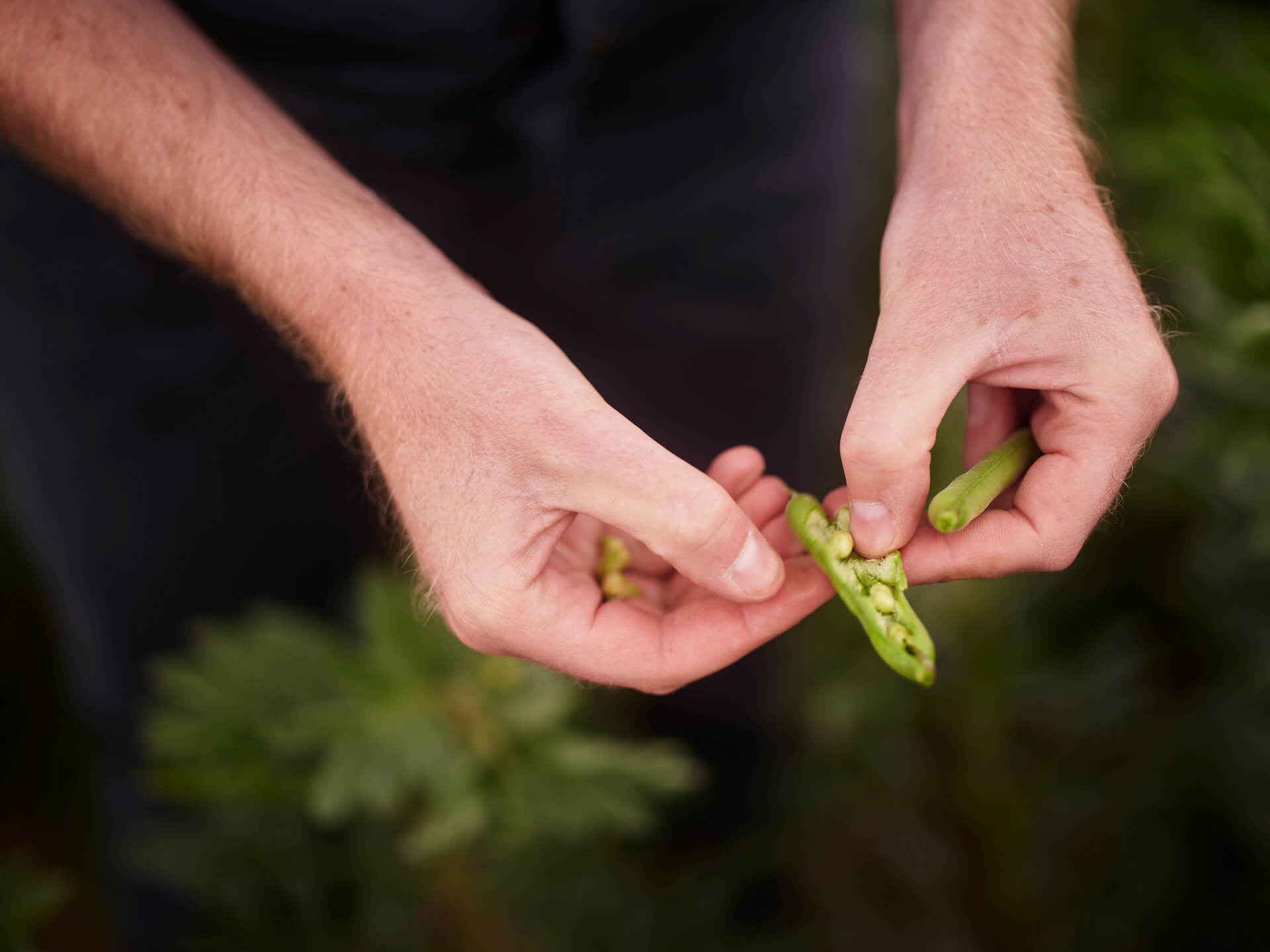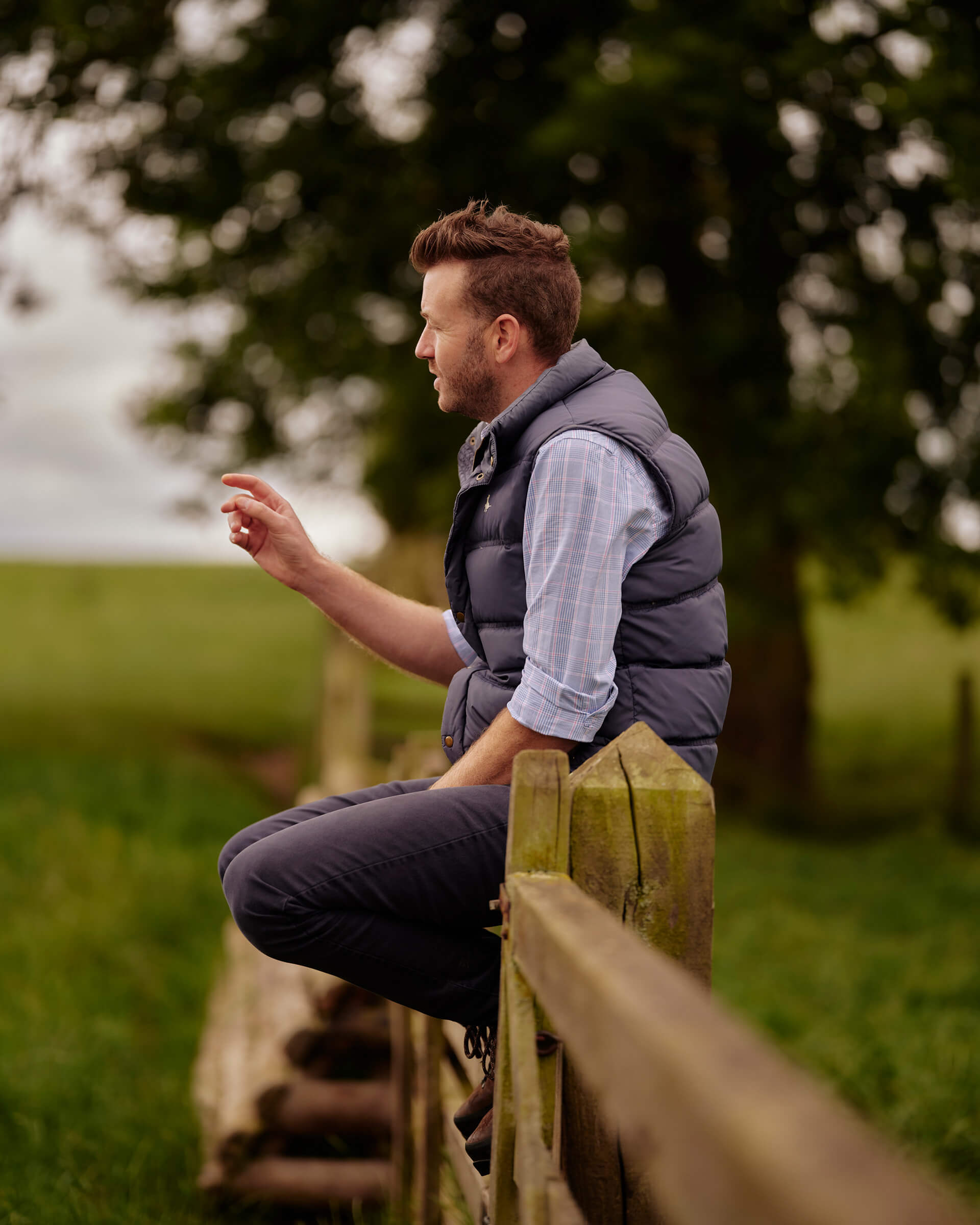Agent of change: Realising the potential of sustainable farming
On March House Farm in Leicestershire, a quiet revolution is underway
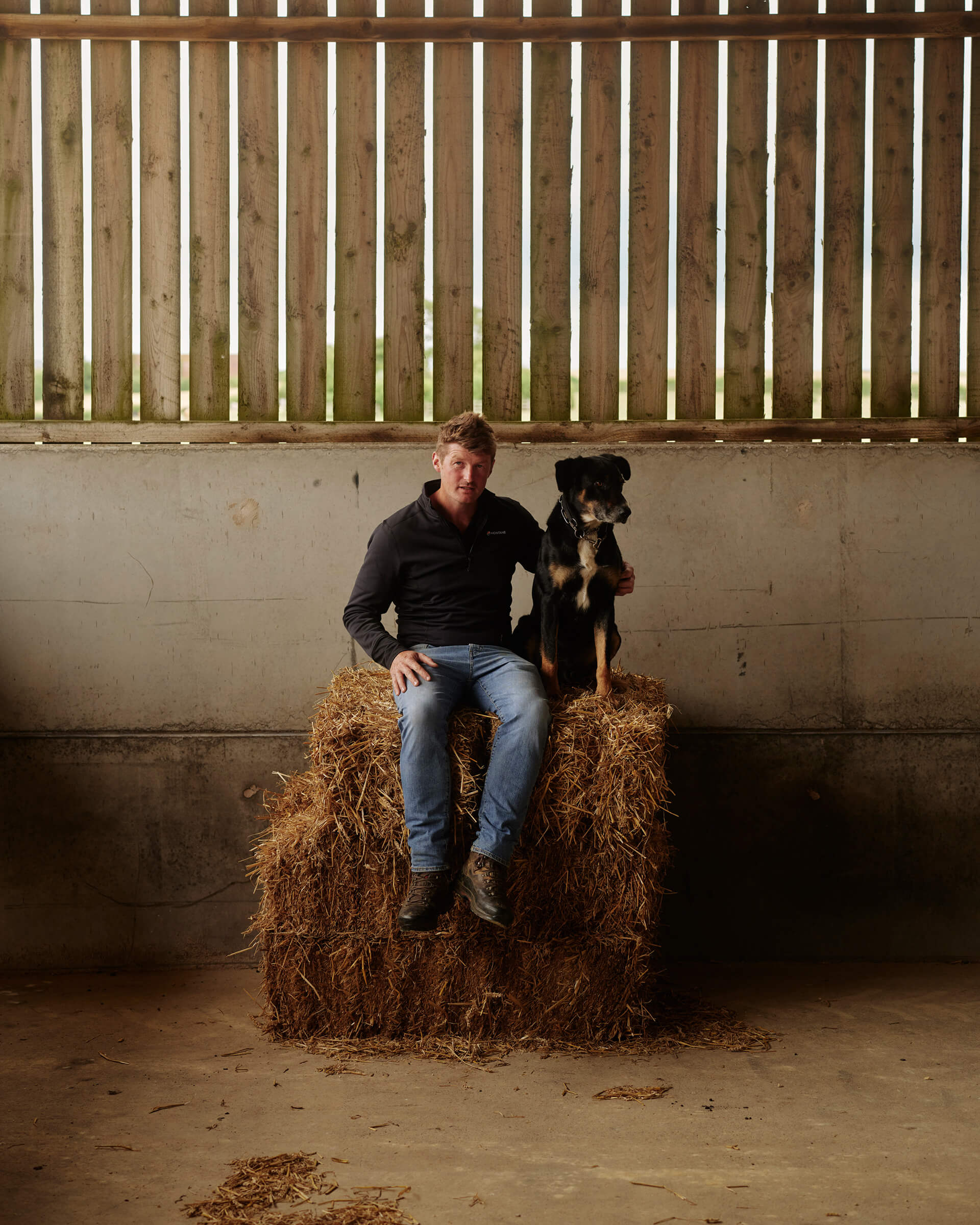
In 2019, Dan Belcher was faced with a thorny problem. He had the opportunity to rent an additional 1,200 acres of land alongside his 1,300-acre farm in Leicestershire, but in spite of expansion, the numbers didn’t add up.
“We realised that if we were to farm intensively with a ‘high input, high output' system, as is common in the UK, the input costs could potentially run away with us: fertiliser, pesticides, fuel, medicine for livestock, and so on,” he explains, as we sit outside his farm shop, a stately timber-built structure perched atop a rolling field, with a sizeable deli and coffee shop attached.
Belcher is one of two brothers who own March House Farm, just outside Melton Mowbray, which alongside growing arable crops is home to 2,500 sheep, 600 beef cattle and some 500 pigs. The farm shop is a hub for the local community, chock-full of exceptional produce, and the Belcher family also sell their wares throughout the week at six different London farmers’ markets. Nevertheless, despite their entrepreneurial approach and the farm’s impressive scale, a few years ago March House Farm’s mounting costs gave the Belchers pause for thought.
Puzzled, Dan decided to call an old acquaintance, Tom Heathcote, Head of Knight Frank’s
Agri Consultancy team, whom he’d known on and off for years. “We’d often catch up and talk about what we were both trying to do,” Belcher says, “and I felt like we’d reached a point where we needed a different approach.” Dan engaged Heathcote, and over the subsequent three years, the Agri Consultancy team has helped March House Farm to embark on an ambitious 10-year plan to invest in regenerative agriculture: the holistic practice of farming sustainably in line with nature, using crops and livestock to improve biodiversity, habitat and soil health, rather than continually taking from the land.
“We’re huge advocates for regenerative farming,” Heathcote says. “Internally, we talk about the ‘three Ps’: People. Planet. Profit. If you get the planet part right, you look after the health of your soil and the natural environment on your land. This maintains and improves the land’s financial margins: increasing profit and prosperity, and that in turn makes for happier, healthier people and a vibrant local community.”
When it came to helping March House Farm to master the three Ps, Tom worked with Dan to define the farm’s long-term objectives, before calling in another expert, agroecologist Ed Brown. “Ed is a highly specialised crop nutritionist,” Tom explains. “He’s one of only a handful of people in the country who can help farmers truly understand their soil with a nature-led, scientific approach.”
Between them, Heathcote and Brown undertook a series of soil tests across March House Farm’s acreage, which they used to underpin a new nature-first strategy to support the farm’s pasture, crops and livestock. From introducing low-impact ‘mob grazing’ for sheep and cattle (a practice that maintains grassland and improves the herd’s health) to sympathetic crop rotations, natural fertilisers and undercropping wheat and barley for biodiversity, the farm is now starting to see the benefits of this newly developed, sustainable approach.
“Tom has helped us to create a low-input, medium-output farm, which is just what we wanted to achieve, with more natural elements available to us,” Dan says. “We’ve more than halved our fertiliser and fungicide spend this year through choice use of natural fertilisers and careful analysis.
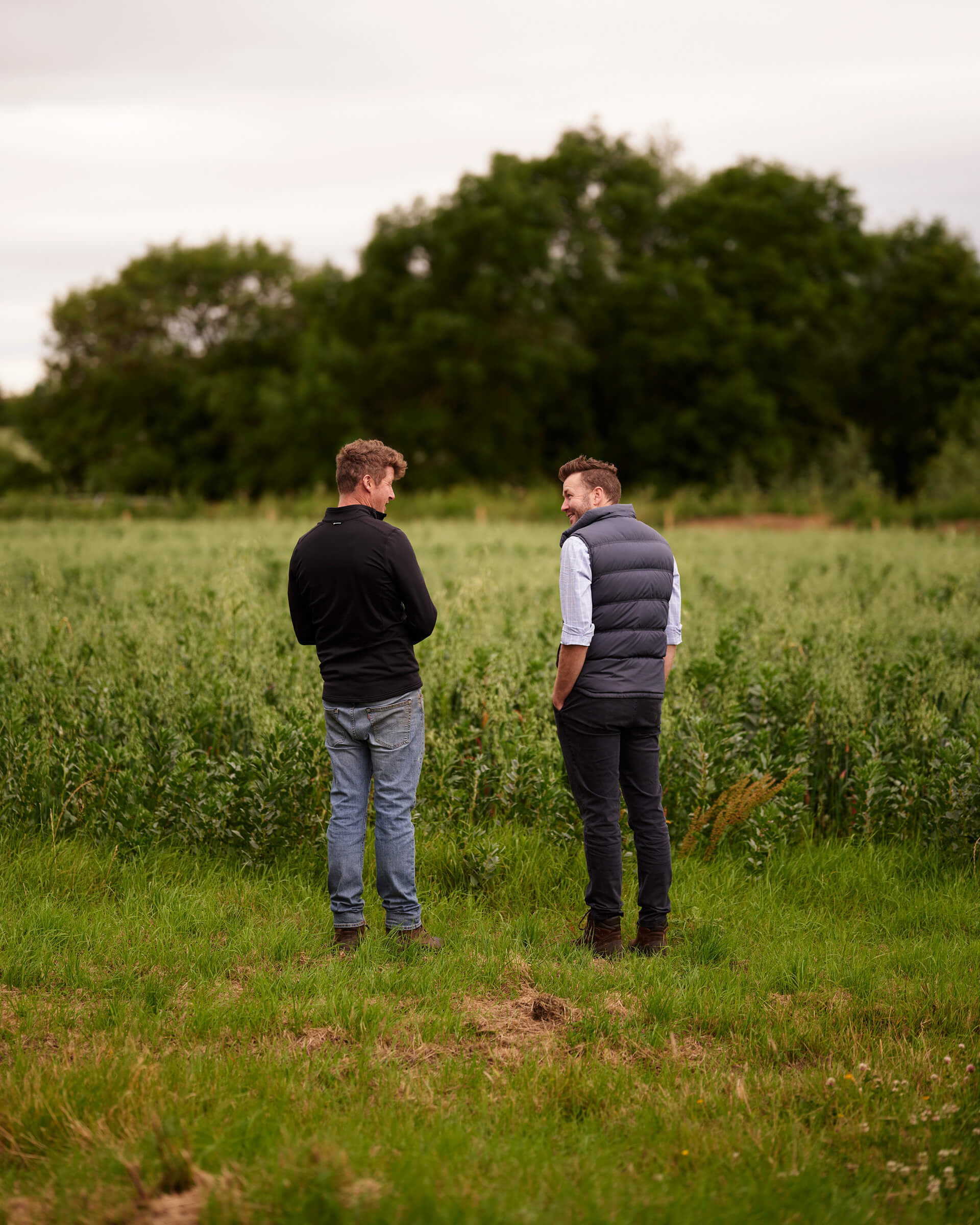
In terms of artificial inputs, this has saved us around £100,000. From what we’re seeing at present, there should be no yield penalty.”
As well as advising on soil health and regenerative farming practices, Tom’s team helps clients to successfully navigate the government’s ever-changing list of priorities for farmers, which veer from food production, to environmental conservation, to green energy production, often with little notice. “Farming is a cyclical industry, and most British farms are multi-generational, family-run operations – like Dan’s. They can’t always pivot at the drop of a hat, and with the Basic Payment Scheme (one of the main farming subsidies) being phased out by 2027, the clock is ticking for landowners to adapt their businesses,” Tom says.
“The great thing about regenerative agriculture is that you future-proof yourself,” he adds. “Using fewer inorganic inputs means that when there are supply chain issues or policy changes overnight, these challenges don’t affect you as much. Plus, healthier soil means less horsepower is needed to maintain it. That in turn means you use less diesel. If you just give it some time, you’ll find that working with nature will actually give you more control.”
Spend some time wandering over hill and dale across March House Farm’s land, and you’ll start to understand Heathcote’s perspective. The impression is of a busy farm in rude health, populated with a happy team and even happier animals. While this exploration of regenerative agriculture is just beginning for the Belchers, it’s already having a clear impact on their business, and securing it for the future.
“We want to leave this land better than it was when we found it,” Dan says. “I’ve got children and this place was my mother’s before me. We’re not here to farm for just the next 10 or 20 years – we’re here to farm for the next 100 years or more.”
Give it some time and you’ll find that working with nature will actually give you more control
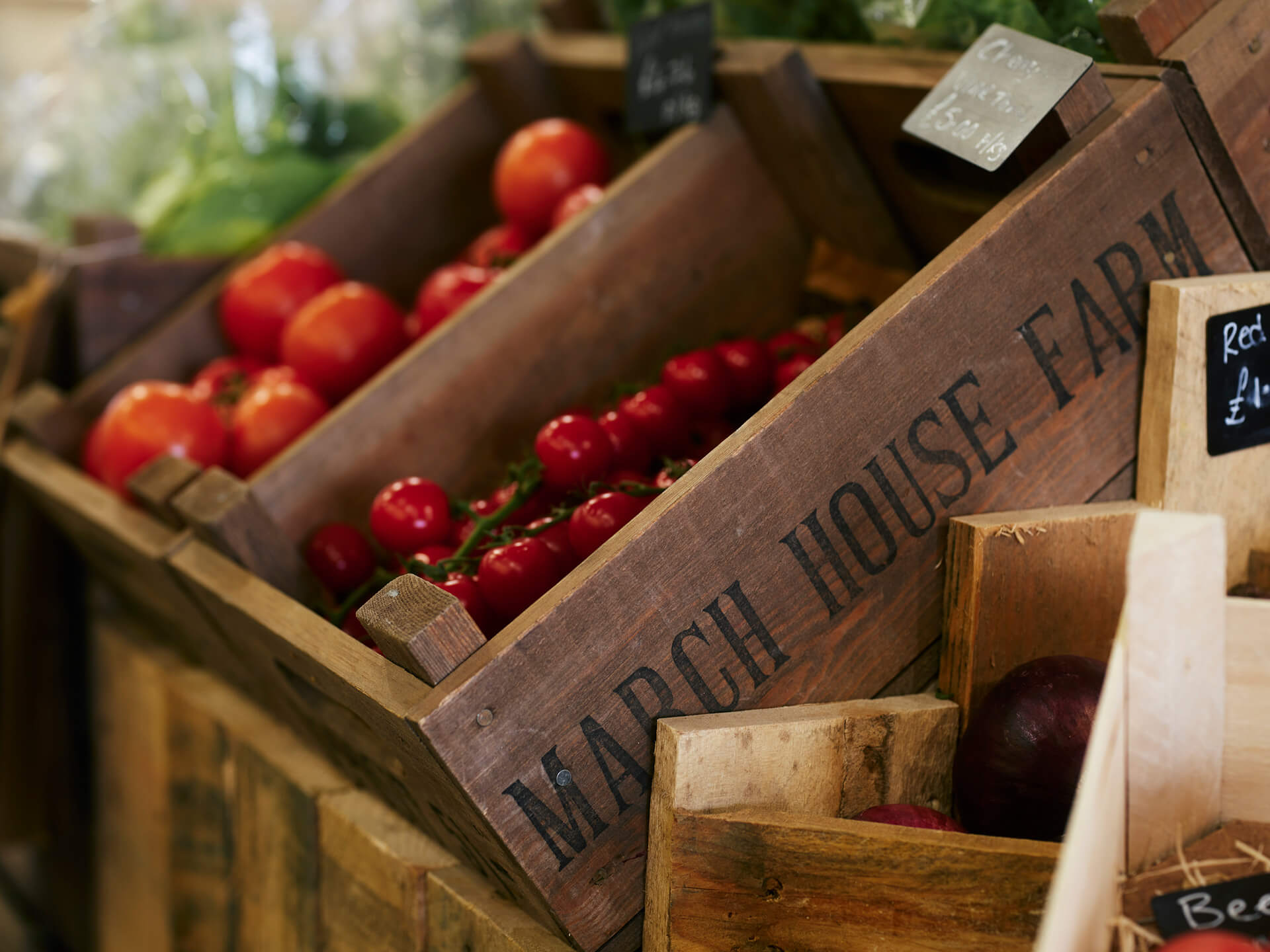
We’re not here to farm for the next 10 years. We’re here for the next 100 years or more
